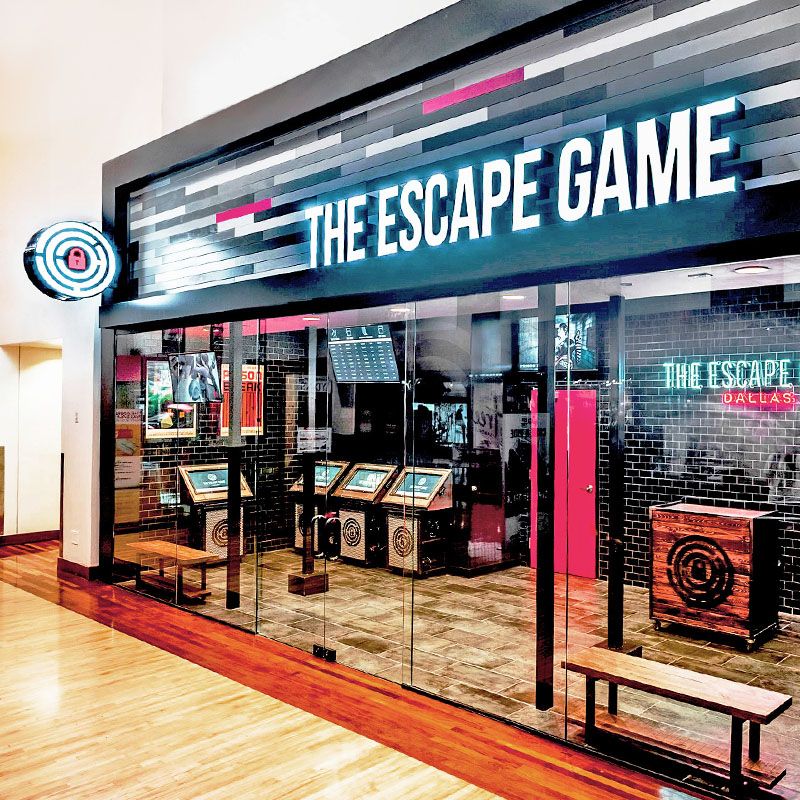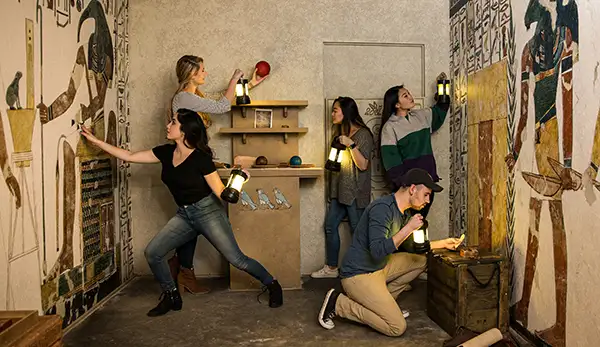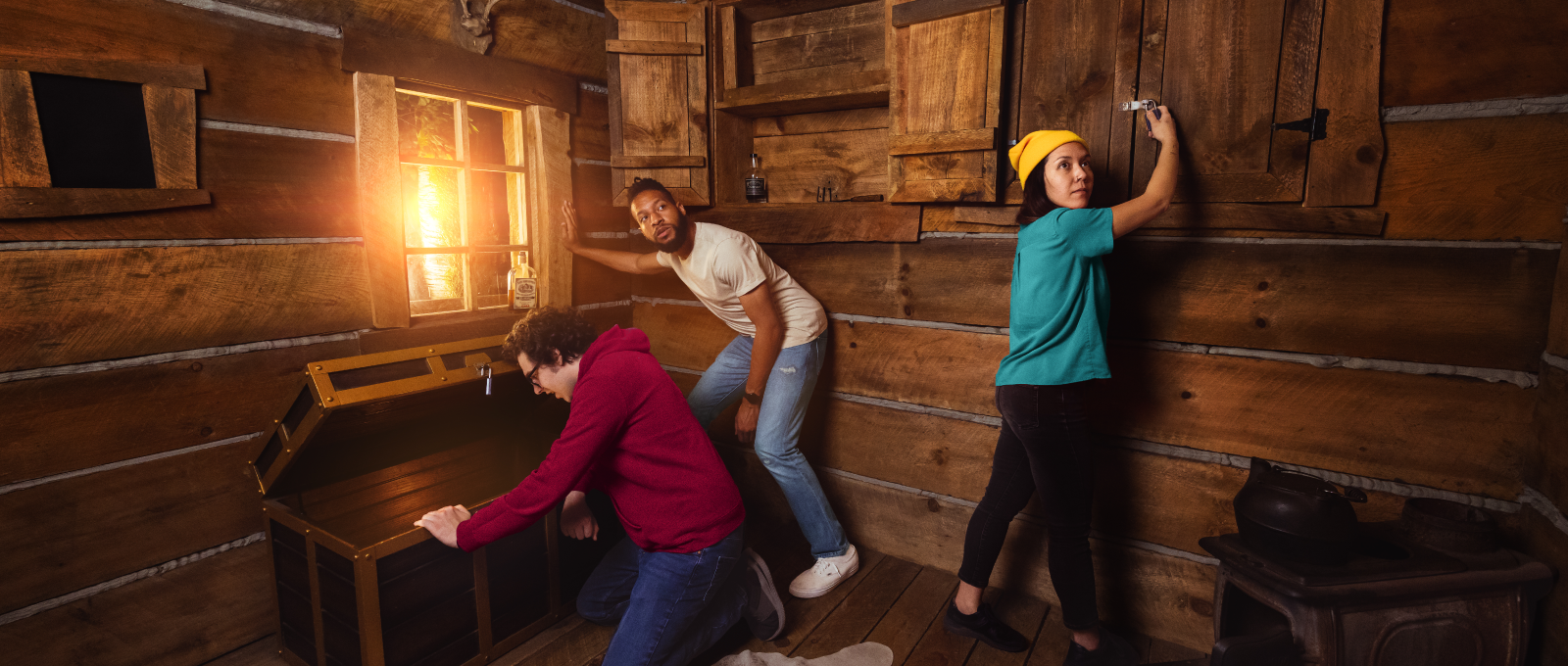Team Strategies: How to Work together Efficiently in a Retreat Area
Groups must actively pay attention to each member's insights, designate roles that line up with specific strengths, and preserve regular check-ins to ensure focus and protect against redundancy. By fostering an atmosphere that values cohesion and versatility, teams can considerably enhance their efficiency and success prices.
Establish Clear Interaction

To help with clear communication, it is essential to designate a main point of contact for information circulation. Quick, focused updates from each group participant can maintain the group educated without frustrating them with info.

Appoint Duties Tactically
While clear interaction sets the structure for efficient team effort, assigning duties tactically makes sure that each staff member's toughness are made use of successfully. In a getaway area circumstance, the time-sensitive and complex nature of difficulties requires an efficient approach to job delegation. By recognizing and leveraging individual proficiencies, teams can optimize their analytic capabilities and enhance general efficiency.
First, assess the distinct abilities and qualities of each individual. For instance, a person with an eager eye for detail could excel in locating covert things, while a sensible thinker might be better matched to resolving problems - best escape room. It's equally crucial to have a leader who can look after development, handle the timeline, and make crucial telephone calls when essential. This function usually needs strong organizational and interpersonal skills.
Second, make certain that functions are versatile and adaptable. As brand-new difficulties arise, the group has to be able to pivot, reallocating tasks as required. This versatility helps keep energy and avoids traffic jams that might happen as a result of rigid function tasks.
Eventually, a strategic strategy to duty task not only makes best use of the strengths of each staff member but also fosters a natural environment, driving the team towards a successful retreat.
Use Diverse Skills
Acknowledging and utilizing the varied skills within your group can dramatically raise your performance in a getaway space. Each team member brings special staminas to the table, and efficiently leveraging these capacities can speed up analytical and improve total effectiveness. For instance, an employee with solid logical abilities might succeed at analyzing intricate codes or patterns, while an additional with keen empirical capabilities may promptly identify covert hints that may overlook.
Encourage team participants to articulate their top article understandings and ideas quickly, making certain that all possible remedies are taken into consideration. Furthermore, designating tasks that align with each member's toughness can prevent bottlenecks and guarantee that development is continual.
Additionally, diversity in skills usually equates to diversity in thinking designs, which is very useful in a retreat space setup. While some difficulties may require sensible thinking and accuracy, others may benefit from imaginative and side reasoning. By identifying and leveraging this diversity, groups can deal with a more comprehensive series of challenges extra effectively, thereby raising their chances of a successful getaway.
Manage Time Successfully

Recognize noticeable challenges and separate tasks based on group participants' toughness, making certain that no one is still. This practice can assist keep the group concentrated and protect against time from sliding away unnoticed.
Furthermore, prevent one-track mind. If a puzzle is taking too long, revolve employee or carry on to an additional difficulty, returning later on with fresh perspectives. Interaction is critical-- maintain every person upgraded on addressed challenges and staying tasks to stay clear of redundant efforts.
Lastly, make use of any kind of hints or ideas sparingly yet strategically - best escape room. Knowing when to request help can conserve important time. By sticking to these time management concepts, groups can significantly improve their chances of an effective and enjoyable getaway area experience
Debrief and Mirror
Reflection this is a necessary facet of group advancement and renovation in the context of escape rooms. When the obstacle is completed, whether effectively or otherwise, it is critical for the group to engage in an organized debriefing session. This process permits employee to examine their efficiency, determine toughness, and identify locations for renovation.
Begin the debrief by discussing what went well. Highlight certain instances of reliable interaction, problem-solving, and collaboration. Recognizing these favorable habits reinforces them and motivates their repeating in future obstacles.
Discuss minutes of complication, miscommunication, or inadequate approaches. Motivate an open and useful dialogue where team participants can share their perspectives without fear of objection.
Conclusion
Finally, effective partnership in a retreat space is asserted upon clear communication, critical role assignments, the efficient application of varied skills, and efficient time management. Normal check-ins and organized debriefings are vital for maintaining focus and cultivating continuous improvement. By developing a natural and adaptive team atmosphere, the likelihood of effectively resolving challenges and accomplishing the purpose of running away the area is considerably boosted. This technique not only makes sure success however also advertises cumulative growth and discovering.